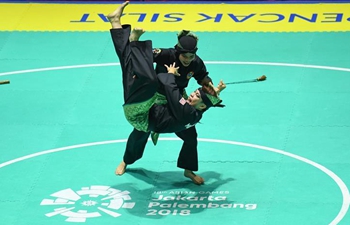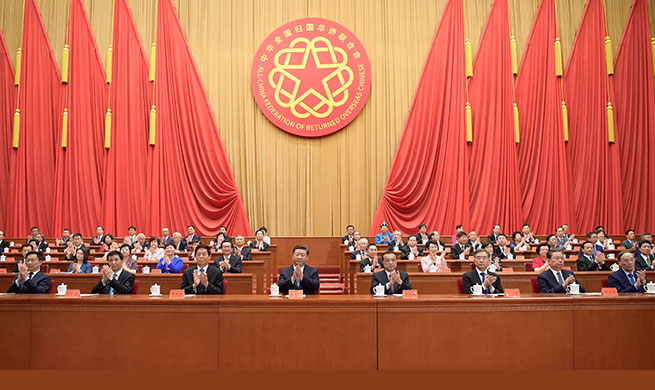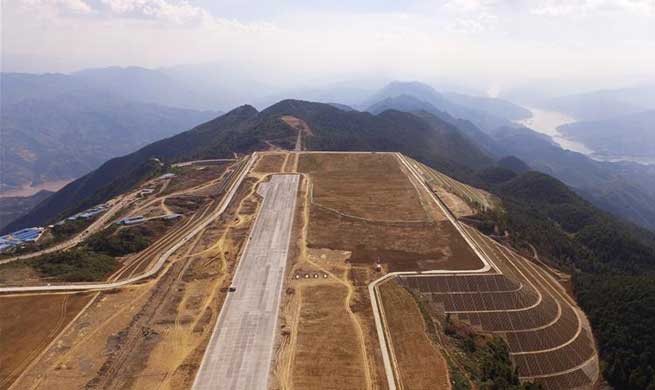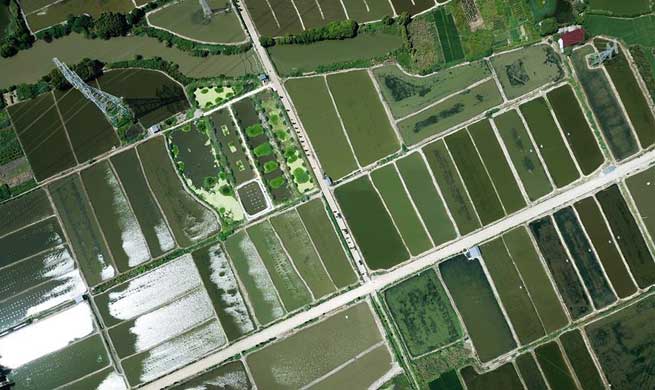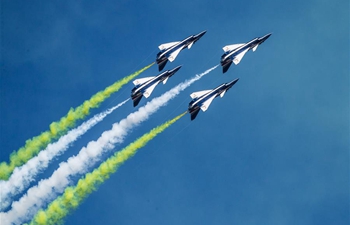GAZA, Aug. 29 (Xinhua) -- Palestinian observers believe that the ongoing division between Palestinian President Mahmoud Abbas' Fatah party and Hamas, ruler of Gaza, may weaken the Palestinian position to reach a unified truce with Israel.
Hamas officials have recently declared that the movement is currently looking into suggestions for a truce with Israel mediated by the United Nations and Egypt.
According to media reports, the agreement is supposed to include humanitarian facilities from Israel to improve the dire situation in the Gaza Strip, especially in the economic field, in return for the establishment of the cease-fire agreement for several years.
Hani al-Masri, a political analyst in the West Bank city of Ramallah, said the race is tough between the trajectories of truce, reconciliation and a possible war on Gaza.
"When the truce appears to be progressing, the reconciliation of all sides retreats and suddenly, everything turns upside down," he said.
Al-Masri said the Palestinian factions in the Gaza Strip, especially Hamas, will deepen the internal division and turn it into a full political separation if they reach a truce with Israel without the consent of the Fatah-led Palestinian Authority.
He stressed that a truce agreement held by a national agreement would open the way for genuine reconciliation, adding that unilateral solutions cannot prevent a war with Israel and will widen internal differences.
Earlier this month, leaders of various Palestinian factions and political powers, including Hamas and Islamic Jihad, ended rounds of dialogue in Egypt's capital Cairo on national reconciliation and a possible truce agreement with Israel.
The dialogue was supposed to be resumed after the Eid al-Adha holiday, which ended Saturday, but Egypt announced that the talks were delayed for several days.
Egypt presented in July an initiative to both Hamas and Fatah, aiming at ending Palestinian internal feuds and pushing forward the reconciliation talks stalled since December of 2017.
Fatah refused to join the meetings of the Palestinian factions in Cairo, stressing that a national reconciliation must be fully achieved before discussing the cease-fire with Israel.
Last October, Hamas and Fatah signed an Egyptian-sponsored reconciliation pact in Cairo to heal their decade-long rift.
Hamas has been controlling Gaza since 2007 after ousting the forces loyal to Abbas.
Under the deal, Hamas should fully hand over its power in Gaza to the Ramallah-based consensus government in December.
However, the ongoing differences between the two sides forced a delay in the implementation of the deal until further notice.
More than one agreement on national reconciliation were reached under Saudi, Qatari and Egyptian sponsorship, but none did reach a tangible breakthrough to end the division which has continued since violent Hamas seized power in the coastal enclave in 2007.
Akram Atallah, a political observer from Gaza, believes that the reconciliation has become "a wheel in the vehicle of truce."
"It seems that it has become one package; calm and reconciliation. Both must be achieved," Atallah told Xinhua.
The observer said the Palestinian parties, along with Cairo, want to get reconciled before achieving a truce with Israel to avoid "falling into the Israeli trap that seeks to perpetuate the division between the Gaza Strip and the West Bank."
"A truce with Israel has become a public demand in Gaza, both in terms of fear of a new Israeli aggression and a desire for a dignified life, but what is needed is a reconciliation that will secure the re-election of the Palestinian political system and end the internal division," he said.
Hamas must realize that its unilateral rule in Gaza has failed, while Fatah must understand that reconciliation is more than possible if Hamas' requirements are met, Attallah added.
Gaza has been placed under a tight Israeli blockade since Hamas seized the territory in 2007.
The blockade has pushed Gaza's 2 million population deeper into poverty with unprecedented high unemployment rates.
In the recent nine years, Israel and Hamas have been engaged in three major wars that claimed the lives of thousands of Palestinians and Israelis.
The UN has warned many times of the danger of another war in the Gaza Strip given the frequent violence on the border with Israel as well as the deteriorating economic conditions in the coastal enclave.







